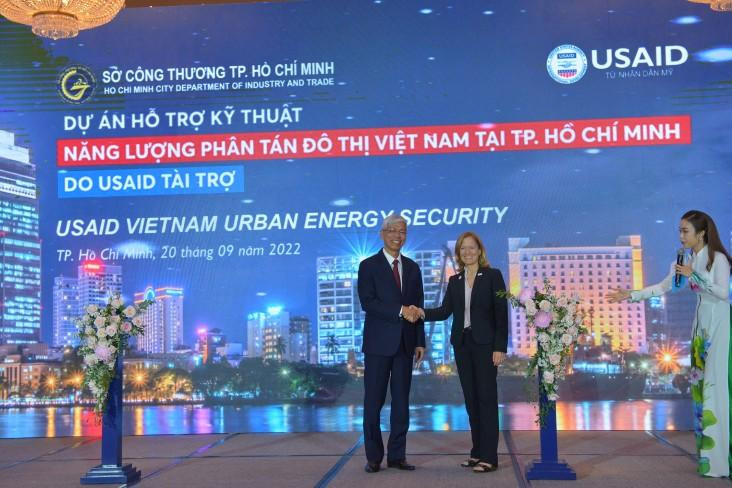USAID Vietnam Director Aler Grubbs said the US is at the forefront of supporting Vietnam’s transition to a clean, secure, and market-driven energy sector.
She added that the project will help attract green investments that will bring a cleaner environment and lower energy costs to residents, further cementing Ho Chi Minh City’s role as a driver of Vietnam’s green economy.
The 14 million USD project, known as USAID Vietnam Urban Energy Security, works with the Ho Chi Minh City and Da Nang governments, to improve urban planning related to clean energy, mobilise investment and integrate clean energy solutions into the power system.
These include rooftop solar, electric vehicles, waste-to-energy and other energy efficiency solutions.
For Ho Chi Minh City, the project plans to deploy at least 400 megawatts of clean energy, mobilise at least 540 million USD in public and private investments, and take at least 15 innovative solutions to urban energy issues to market.
This project builds on prior years of USAID assistance to Vietnam for its clean energy transition.
Over the past five years, USAID support to government regulators, banks, investors, and private sector developers helped spur solar and wind investments in Vietnam totalling more than 300 million USD.
In addition, USAID supported the Vietnamese Government in developing its Power Development Plan VIII, which sets the overarching vision and operating principles for Vietnam’s power sector from 2021 to 2030.
USAID also worked closely with the Ministry of Industry and Trade to develop Minimum Energy Efficiency Performance Standards to reduce energy consumption in industrial production.
















